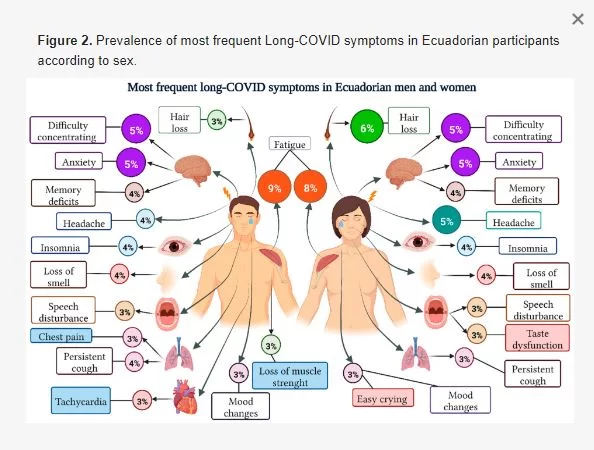
Background: Several reports from around the world have reported that some patients who have recovered from COVID-19 have experienced a range of persistent or new clinical symptoms after a SARS-CoV-2 infection. These symptoms can last from weeks to months, impacting everyday functioning to a significant number of patients.
Results: Overall, 1100 (52.3%) responders claimed to have Long-COVID symptoms after SARS-CoV-2 infection. Most of these were reported by women (64.0%); the most affected group was young adults between 21 to 40 years (68.5%), and most long-haulers were mestizos (91.6%). We found that high altitude residents were more likely to report persisting symptoms (71.7%) versus those living at lower altitudes (29.3%). The most common symptoms were fatigue or tiredness (8.4%), hair loss (5.1%) and difficulty concentrating (5.0%). The highest proportion of symptoms was observed in the group that received less than 2 doses.
Conclusions: This is the first study describing post-COVID symptoms’ persistence in low and high-altitude residents. Our findings demonstrate that women, especially those aging between 21-40, are more likely to describe Long-COVID. We also found that living at a high altitude was associated with higher reports of mood changes, tachycardia, decreased libido, insomnia, and palpitations compared to lowlanders. Finally, we found a greater risk to report Long-COVID symptoms among women, those with previous comorbidities and those who had a severer acute SARS-CoV-2 infection.
Link to Study: https://pubmed.ncbi.nlm.nih.gov/36429392/










